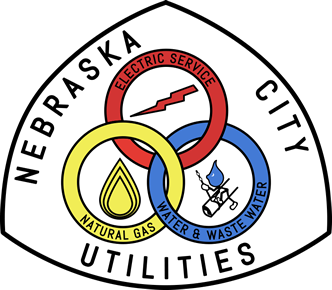Our qualified electric serviceman gives educational electric safety to children in schools and/or organizations.
Our electric serviceman addresses electric safety inside and outside the home. Some areas discussed are water and electricity, kite safety, and utility sub-station dangers. He will also explain how we receive electricity to our homes and schools from that sub-station. A safety film can be shown, activity safety sheets can be completed, and a time for questions and answers. The kids really get involved and enjoy the program. Please call our office if you would like to schedule a class.
Utilities across the country have warned their customers that a scene in the film “Like Mike” does not convey the true dangers of electric utility poles and wires.
- Don’t climb power poles.
- Don’t throw toys, sneakers, or any other object over electrical wires.
- Stay out of high-voltage power line right-of-way and electrical substations, or any place where “danger high voltage” signs are placed.
- Fly kites and balloons in open areas away from power lines.
Never touch downed wires. Contact the utility or local law enforcement agencies immediately if you notice downed wires.
Department of Energy: K-12 Energy Lesson Plans & Activities
Additional Electrical Safety Tips
OUTLETS
Check for outlets that have loose-fitting plugs, which can overheat and lead to fire. Replace any missing or broken wall plates. Make sure there are safety covers on all unused outlets that are accessible to children.
EXTENSION CORDS
Check to see that the cords are not overloaded. Also, extension cords should only be used on temporary basis; they are not intended as permanent household wiring. Make sure extension cords have safety closures to help prevent young children from shock hazards and mouth burn injuries.
CORDS
Make sure cords are in good condition, not frayed or cracked. Make sure they are placed out of traffic areas. Cords should never be nailed or stapled to the wall, baseboard or to another object. Do no place cords under carpets or rugs or rest any furniture on them.
PLUGS
Make sure your plugs fit your outlets. Never remove the ground pin (the third prong) to make a three-prong plug fit a two conductor outlet; this could lead to an electrical shock. NEVER FORCE A PLUG INTO AN OUTLET IF IT DOESN’T FIT. Plugs should fit securely into outlets. Avoid overloading outlets with too many appliances.
GROUND FAULT CIRCUIT INTERRUPTERS (GFCIs)
GFCIs can help prevent electrocution. They should be used in any area where water and electricity may come into contact. When a GFCI senses current leakage in an electrical circuit, it assumes a ground fault has occurred. It then interrupts power fast enough to help prevent serious injury from electrical shock. Test GFCIs regularly according to the manufacturer’s instructions to make sure they are working properly.
